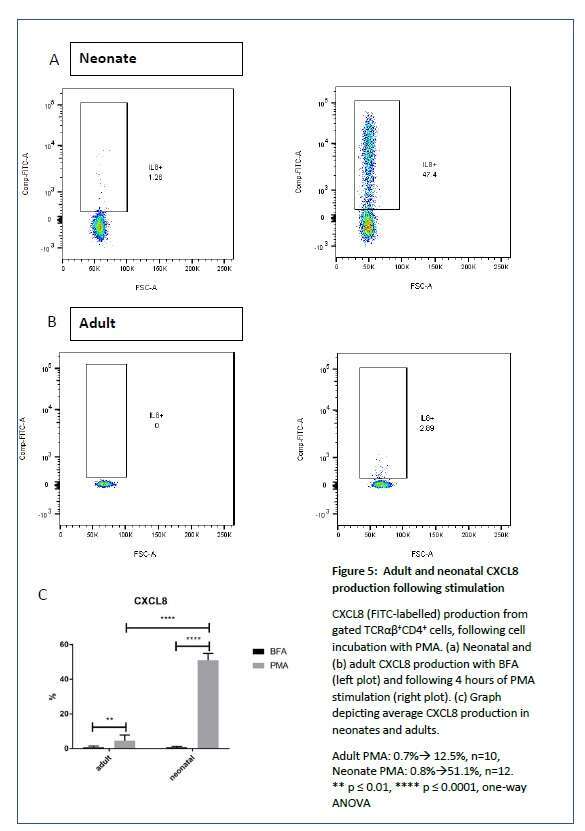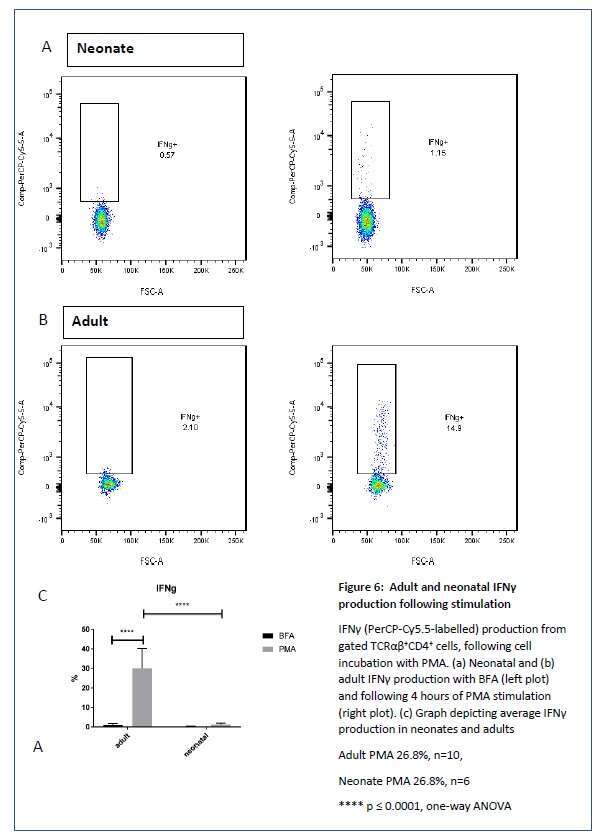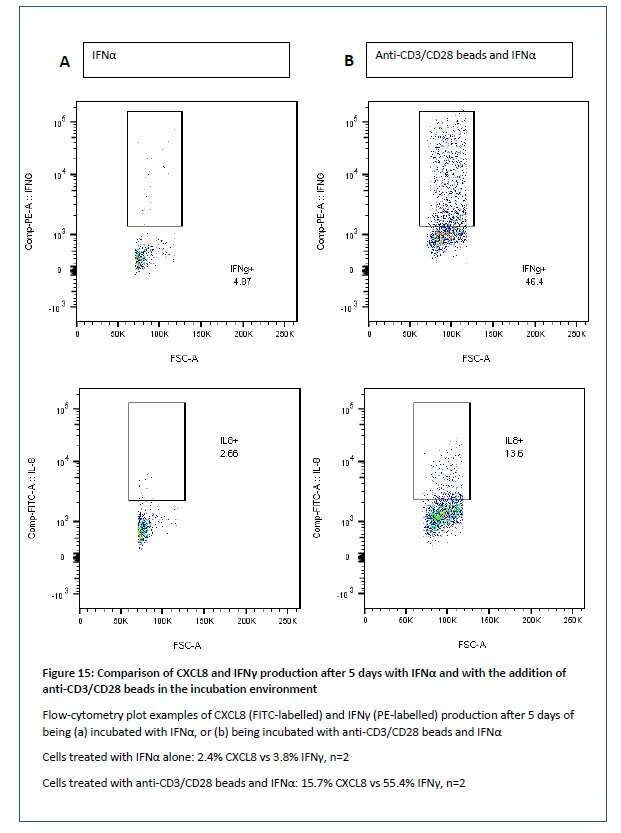
What Controls the Development of IFNγ-Producing cells in the Human Neonate?
Division of Immunology, Infection and Inflammatory Diseases in the Faculty of Life Sciences & Medicine, Kings College London, UK
The transition from intrauterine to extrauterine life provides a unique challenge for the neonatal immune system. The increased exposure to foreign- and self-antigen warrants a balanced orchestration of proinflammatory and immunoregulatory responses in the neonate. Recent research has led to the identification and subsequent emergence of interleukin-8, a major innate immune cytokine as a major chemokine that is produced by neonatal CD4 T cells. Following sustained proliferation, these cells can differentiate to produce interferon-gamma, a key T helper 1 (Th1) cytokine. Our study aims to elucidate the surface markers, cytokines and genes that may be involved in promoting this potentially useful differentiation. We demonstrate using flow-cytometric analysis of surface cell staining that the expression of CXCR1 and CXCR2 is induced upon neonatal CD4 T cell stimulation, suggesting autocrine interleukin-8 activity. Our analysis of flow-cytometry data also identified that interferon-gamma production in neonatal CD4 T cells is associated with CXCR1 and CXCR2 expression, suggesting an importance of these two receptors for Th1 differentiation. We also identified an increased expression of CXCR3, CCR4 and CD35 following CD4 T cell receptor stimulation in the neonate, promoting roles for these receptors. Co-stimulation of cells with interferon-alpha and anti-CD3/CD28 beads induced a significant production of interferon-gamma, highlighting a possible mechanism of inducing Th1-differentiation in the neonate. Furthermore, using real-time polymerase chain reaction analysis, we identified an association between cell stimulation and gene expression of known Th1-related genes. Overall, our data has identified potential key receptors and cytokines that may help unlock and expand the understanding of the neonatal immune system, which will have undoubted multifaceted benefits for neonatal health. Our research can be tailored to test whether neonatal CD4 T cells have the propensity to differentiate into other effector T cell lineages such as T helper 2 and T helper 17 cells. Furthering knowledge of neonatal immunity will aid in improving identification and treatment of patients at risk of debilitating infection in early life.



Powered by Eventact EMS